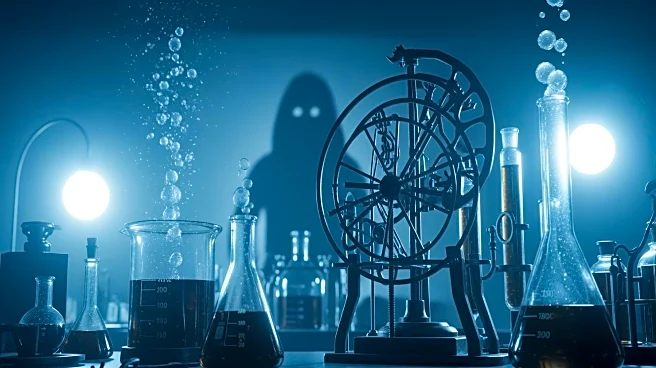What's Happening?
Filmmaker Guillermo del Toro has shared insights into his latest movie adaptation of Mary Shelley's 'Frankenstein' during an interview on NPR's Fresh Air. Del Toro recounted his childhood experience of watching
the 1931 version of 'Frankenstein' in Guadalajara, Mexico, which inspired his filmmaking career. His adaptation aims to explore the timeless themes of Shelley's work, particularly the tragic consequences of human ambition and isolation. Del Toro's film revisits the story of Victor Frankenstein, a scientist who creates a living being from human body parts, only to be horrified by his creation. The narrative delves into the creature's struggle for acceptance and the societal rejection he faces, drawing parallels to contemporary issues of loneliness and the ethical implications of scientific advancements.
Why It's Important?
Del Toro's adaptation of 'Frankenstein' is significant as it highlights enduring themes relevant to modern society, such as the ethical boundaries of scientific exploration and the human experience of isolation. The film serves as a cautionary tale, reflecting on the potential consequences of unchecked ambition, akin to the promises made by today's tech and pharmaceutical industries. By revisiting Shelley's narrative, del Toro encourages audiences to consider the moral responsibilities that accompany technological and scientific progress. The story's exploration of societal rejection and the quest for companionship resonates with current discussions on mental health and the 'epidemic of loneliness' affecting many individuals today.
What's Next?
The release of del Toro's 'Frankenstein' adaptation is likely to spark discussions on the ethical dimensions of scientific innovation and the societal impacts of technology. As audiences engage with the film, there may be increased scrutiny on how modern advancements are shaping human interactions and societal norms. Stakeholders in the tech and scientific communities might face calls for greater transparency and ethical considerations in their pursuits. Additionally, the film could inspire further artistic explorations of classic literature, encouraging filmmakers to reinterpret timeless stories through contemporary lenses.
Beyond the Headlines
Del Toro's adaptation of 'Frankenstein' not only revisits a classic horror story but also serves as a reflection on the cultural and ethical challenges posed by modern technological advancements. The film invites viewers to consider the balance between innovation and humanity, urging a reevaluation of how society perceives and interacts with those who are different. By drawing parallels between Shelley's narrative and today's societal issues, del Toro's work underscores the importance of empathy and understanding in an increasingly isolated world.











